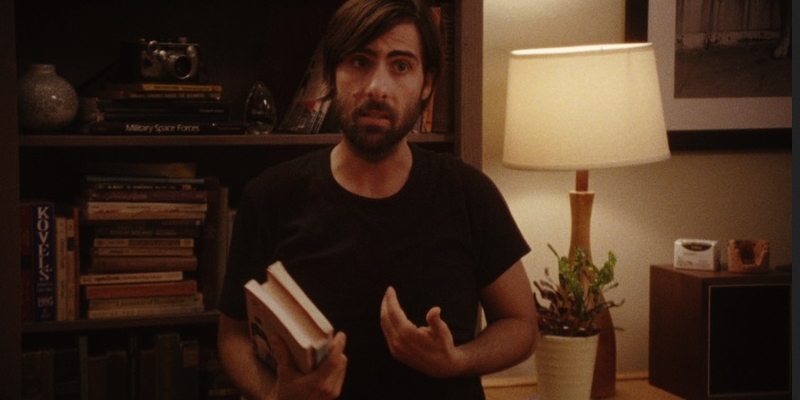Movie Review: Jason Schwarzman is Tone Deaf in ‘Listen Up Philip’

When asked to describe a writer — or an artist of any kind, really — the first thing that comes to mind for many is some form of the phrase “self-absorbtion.” Alex Ross Perry’s new film Listen Up Philip takes this worn character type and catches him just before his fall into misery, and success. Jason Schwartzman plays a complete scumbag with the understanding that his constant need to agitate those closest to him, and in turn destroying most of his relationships, comes from a broken place. That doesn’t mean that he’s enjoyable to be around. He’s only enjoyable to watch as he slowly tries to sabotage the release of his second novel and his relationship with Ashley (Elizabeth Moss).
Excited about the release of his new book, Philip (Schwarzman) can’t seem to wait to reach a new level of success, and isn’t ashamed to throw it in anyone else’s face. Despite his unbearable need to prove himself as the best in the room, Schwarzman allows a glimmer of something human to keep the illusion that anyone would feel any connection with him. For him, it’s not until he’s summoned by his idol, and successful but reclusive author, Ike Zimmerman (Jonathan Pryce) and the two strike up a friendship that he lets down his guard somewhat.
Perry’s goals are respectable if slightly too in debt to the early French New Wave. A matter-of-fact narrative voice follows Philip, Ashley and Ike as period Jazz plays the blues. The camera is also drawn to the fly-on-the-wall style that only brings more attention to who’s behind it. Still, Schwarzman, Moss, and Pryce take good material and mold it into something that seems like it’s nearing some sort of truth.
Philip all but abandons Ashley at the offer to stay with Ike at his summer home. There he finds Zimmerman’s bitter daughter Melanie (Krysten Ritter), and glimpse to a possible outcome of his own life. Although once revered, he has since burned his bridges and fallen into a lingering period of writer’s block. Philip doesn’t notice this right away, of course, and instead seems to have found someone who understands his selfishness and overflowing ego. It’s obvious that Philip feels something for Ashley, who suffers through a period of introspection, but he just can’t stop sabotaging it.
Understandably hard to watch at times, it seems to be asking if great art needs to come from a place of pure pain, and if perhaps some of Philip’s need to shatter everything is some twisted put on he can’t turn off. Maybe not, but Ashley is herself a successful artist and has something of a recognizable life. It raises age old questions about how art affects humanity and vice versa, which can at times feel tired, but is usually quite fascinating.
Rating: 3.5 out of 5







